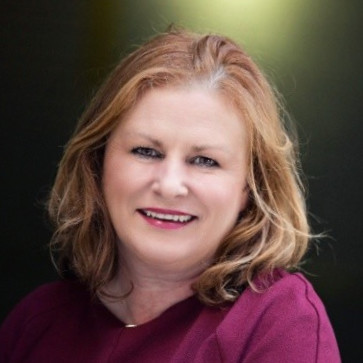In this data-driven world of cloud connectivity, computing and the Internet of Things, medical companies and healthcare providers are placing a greater emphasis on products and services that can utilize almost real-time-available clinical data, as well as incorporate machine learning and data integration into patient diagnostic and care solutions.
Information is crucial to managing health services costs effectively. Big data and electronic health records can improve resource allocation, clinical protocols, diagnostics and treatment. Consumer-based health education and innovations such as telemedicine and home monitoring create new possibilities for self-management.
With the goals of helping patients heal, get healthy, and leave hospital care as quickly as possible—thus assisting organizations to better manage costs and resources for helping more people—hospitals are showing a great deal of interest in digital health. From software and cloud services to sensors and body-worn devices, a wave of health-related systems is emerging within the healthcare market.
Irish MedTech
Ireland is one of the top, emerging, global medical technology (medtech) hubs. Home to 17 of the world’s top-25 medtech multinational companies, Ireland supports a vibrant indigenous industry, with a world-class innovation and research ecosystem. As global medtech leaders, Ireland is home to more than 450 companies employing nearly 30,000 people, developing the technologies to bring about lower-cost, more localized treatments.
Curam at National University of Ireland Galway (NUIG), for example, is a dedicated medical device research center with more than 40 academic and industry partners who are working to develop low-cost solutions for chronic illnesses such as heart disease and diabetes through cutting-edge research in biomaterials, stem cells and drug delivery. Curam is just one of many medtech initiatives in Ireland. There is a great deal of work being done at universities throughout Ireland in areas such as bioengineering and novel materials for medical devices.
With an increasingly unhealthy populace, burdened by “developed world” diseases like diabetes and obesity, along with rocketing mental health issues, the current model of healthcare is changing from one in which care was administered reactively to a more proactive, preventative approach.
Advancing the Industry
Traditionally recognized as home to robust finished medical devices and medical device sub-supply market, Ireland is increasingly seeing digital solution developments that create value-add opportunities for medical device manufacturers, cost savings for hospitals and improved outcomes for patients.
North America—and the Western world in general—is facing the considerable challenge of aging populations with much higher instances of chronic disease. This places significant pressure on healthcare providers, as they seek to stretch budgets to cope with ever-increasing demand. Technology can help ensure that healthcare visits are undertaken only when necessary, offering convenience for the patient and relieving pressure on the overburdened providers. Here’s a quick look at just a few Irish medtech companies who are helping shape healthcare.
Silvercloud Health has developed an online behavioral health platform that helps providers address a range of mental and behavioral health issues. The company’s programs are designed in conjunction with world-leading partners from academic and medical institutions. The content is designed to be motivational, easy to use and interactive with relevance to the unique requirements of the service user.
Interactive and engaging programs are delivered via a user-friendly platform. The platform has been designed with tools and tactics to empower patients and providers to manage mental and behavioral health as well as social and supportive elements—providing the human touch that is associated with face-to-face support, and all developed with the most up-to-date technology possible.
Bluedrop Medical offers IoT devices that help predict and reduce the burden of diabetic foot disease. Founded by two medical device engineers, the Bluedrop IoT device addresses the formation of diabetic foot ulcers, allowing ulcers to be detected early when treatment is easier, and outcomes and costs are much improved. The home-based device performs a daily scan of the patient’s feet and sends the data to the cloud for analysis through advanced algorithms capable of detecting abnormalities. By identifying ulcers early, the technology can prevent hundreds of thousands of amputations, improve lives and save systems millions of dollars each year.
Kinesis Health Technologies’ QTUG (Quantitative Timed Up and Go) technology provides an objective tool for identifying older adults at risk of falling. QTUG is based on the Timed Up and Go test and is instrumented with wireless sensors placed on each leg. This technology provides a method for objective assessment of mobility, frailty and falls risk. It provides automatic analysis of patient data against average values for patients’ age and gender with color coding to indicate deviations from normality. QTUG is intended to assist those assessing falls risk, by providing a falls risk score (known as the Falls Risk Estimate (FRE)) and a frailty score (known as the Frailty Estimate) along with fast, accurate and objective data. QTUG also incorporates a questionnaire based on the American Geriatric Society (AGS) and the British Geriatric Society (BGS) guidelines recording standard falls risk-factors.
Salaso Health Solutions is passionate about the power and value of exercise to enhance recovery from injury and support the management of pain and musculoskeletal conditions. The company firmly believes that there’s always an exercise that can help. Whether helping an elite athlete recover from injury, someone dealing with an ongoing chronic painful condition, or a patient recovering from an operation such as a total hip replacement, there are exercises that can improve physical health and wellbeing. By utilizing science-based physiotherapy, Salaso Health’s video production process is founded on multimedia research in how to best learn from video, and the exercises and exercise protocols are based on well-researched trials and evidence-based clinical practice. The Salaso software incorporates data monitoring and validated patient-reported outcomes to show the effectiveness of exercise therapy.
Technologies that help physicians monitor patients at home, help them follow their treatment plan, or foster patient-physician communication are highly sought after, particularly considering the CDM requirement of the baby boomer generation entering retirement and the much-publicized obesity problem. U.S. demography is more or less reflective of the developed world, and while many countries may have a bit more time, it won’t be long before we all face similar challenges.
While the entrepreneurial world keeps a look out for the next killer app, I’m proud to see the success of Irish MedTech industry in developing life-saving digital and connected solutions that are improving patient outcomes and advancing doctor and provider effectiveness.







